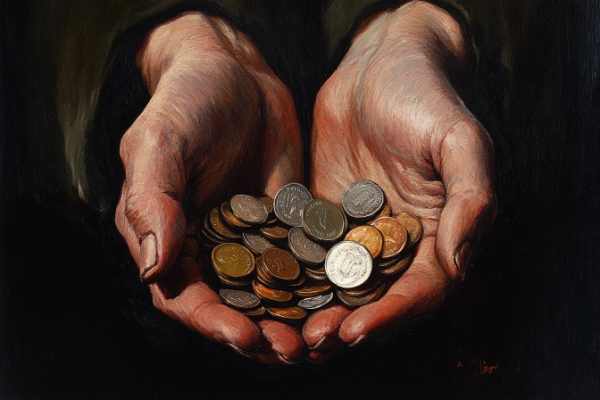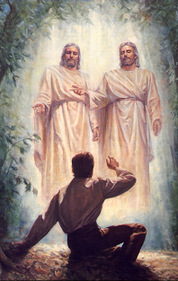Question
Gramps,
In a General Conference talk by Dean Davies, he stated, “Complete fulfillment of the law of the fast occurs when the fast offering is made to the Lord’s agent, the bishop.”
Occasionally, my wife and I fast for other reasons and at different times other than on Fast Sunday. When we have these “extra” fasts, my wife posed the question as to whether or not we should pay fast offerings. I indicated that I thought not, as extra fasting was not part of the “law of the fast.” Your thoughts?
Curt
Answer
Curt,
Fasting in The Church of Jesus Christ of Latter-day Saints is not merely an act of abstaining from food; it is a deeply spiritual practice with several key purposes. The Church teaches that fasting serves three primary functions: to assist the poor and needy, to promote personal spiritual growth, and to test one’s faith and humility.
One of the most significant aspects of fasting in the Church is its connection to charity. Members are encouraged to fast on the first Sunday of each month, abstaining from two meals and donating the money saved as a fast offering to help those in need. This practice is rooted in the teachings of Jesus Christ, who emphasized the importance of caring for the poor and needy. Bishop Dean M. Davies articulated this principle, stating that “caring for the poor and needy is a fundamental gospel doctrine and an essential element in the eternal plan of salvation.”
The scriptures reinforce this idea, as seen in Deuteronomy 15:11, which commands,
“For the poor shall never cease out of the land: therefore I command thee, saying, Thou shalt open thine hand wide unto thy brother, to thy poor, and to thy needy, in thy land.”
Thus, fasting is not only a personal sacrifice but also a communal act that fosters compassion and empathy among members of the Church.
Fasting is also a means of personal spiritual growth. It is a time for reflection, prayer, and seeking guidance from Heavenly Father. The act of fasting can lead to increased spiritual strength, humility, and a deeper connection with God. As members abstain from food, they are encouraged to focus on prayer and spiritual matters, allowing them to draw closer to the Lord.
President Joseph F. Smith emphasized the importance of humility in fasting, warning against the dangers of overdoing it. He stated,
“There is such a thing as overdoing. A man may fast and pray till he kills himself; and there isn’t any necessity for it; nor wisdom in it.”
This perspective highlights the need for balance in fasting, ensuring that it remains a spiritually uplifting experience rather than a burdensome obligation.
Fasting can also serve as a test of faith. It challenges individuals to rely on God and trust in His timing and wisdom. When members fast for specific reasons, such as healing from illness or seeking guidance, they are reminded to submit their will to God’s. This aspect of fasting encourages humility and a recognition that, while faith is essential, the outcome is ultimately in God’s hands.
In a previous answer to a question about fasting Gramps stated, “When we come to the Lord in prayer, and ask Our Heavenly Father in prayer for a specific purpose, we need to ask that the will of God be done.” This understanding fosters a deeper relationship with God, as members learn to trust in His plan, even when their prayers are not answered in the way they hope.
There are also practical considerations that members of the Church should keep in mind. These include the guidelines for fasting, the role of fast offerings, and the flexibility of fasting practices.
The Church encourages members to fast for two consecutive meals, typically on the first Sunday of each month. However, there is flexibility in how this is practiced. For instance, if a member is unable to fast on the designated day due to health reasons or other circumstances, they are encouraged to choose another day to observe a fast. This adaptability allows members to engage in fasting in a way that is meaningful and feasible for them.
As mentioned earlier, fast offerings are a crucial component of the fasting practice in the Church. Members are encouraged to donate an amount equivalent to the value of the food they would have consumed during their fast. However, the Church also emphasizes the importance of generosity in these offerings. President Thomas S. Monson encouraged members to give beyond the minimum, suggesting that they “go beyond a minimum amount” and contribute more if possible. This principle reinforces the idea that fasting is not just about personal sacrifice but also about contributing to the welfare of others.
In recent years, there has been an increasing interest in fasting for health reasons, particularly concerning chronic diseases and overall well-being. While the Church does not specifically endorse fasting for health purposes, it acknowledges that individuals may choose to fast for personal reasons outside of the traditional monthly fast.
Fasting can be a complex topic, and members of the Church often have questions about its practice. Here are some common inquiries and clarifications regarding fasting in The Church of Jesus Christ of Latter-day Saints.
Does fasting require a fast offering every time?
While the Church encourages members to give a fast offering during the monthly fast, there is no strict requirement to do so for every personal fast. However, if a member chooses to fast for a specific reason, it is recommended that they consider making a fast offering as a way to contribute to the welfare of others. Ultimately, the decision is a personal one, guided by individual circumstances and spiritual promptings.
What if I need to take medication during a fast?
Members often wonder about the implications of taking medication while fasting. According to Church teachings, if a member must take medication that requires food, it is acceptable to break the fast for that purpose. The Lord understands the necessity of health and well-being, and members are encouraged to prioritize their health while still engaging in fasting practices.
Is there a specific duration for fasting?
Traditionally, fasting in the Church is associated with abstaining from two meals, typically over a 24-hour period. However, there is no rigid rule regarding the exact duration of a fast. The emphasis is on the spirit of the fast rather than strict adherence to time limits. Members are encouraged to focus on the purpose of their fast and the accompanying prayers and reflections.
Gramps







